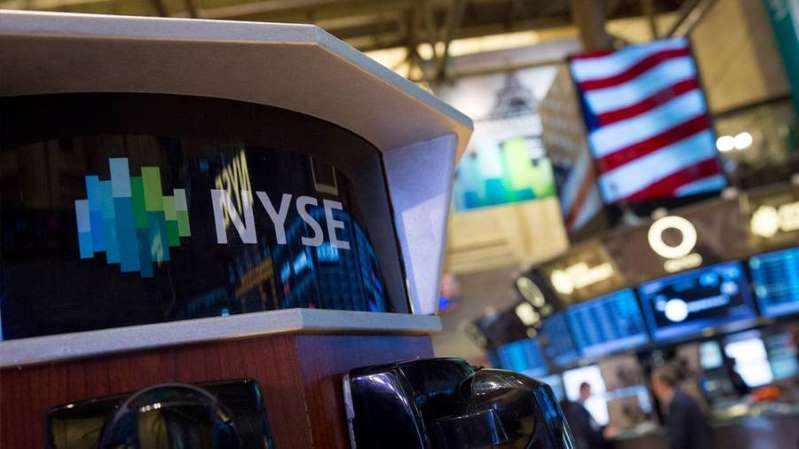By Martin Baccardax, The Street–
The Tuesday Market Minute
- Global stocks mixed as Asia rallies on manufacturing rebound, Europe slips lower on virus and U.S-China tension concerns.
- President Trump demands ‘substantial portion’ of TikTok sale proceeds after forcing the China-based App to sell its U.S. operations.
- Global coronavirus cases rise past 18 million, with U.S. infections nearing 5 million, as the pandemic enters its eighth month.
- U.S. Treasury says it will borrow more than $2 trillion over the second half of the year as the cost of coronavirus stimulus pledges continues to mount.
- U.S. equity futures suggest a softer open on Wall Street ahead of Redbook retail sales data at 8:55 am Eastern time and after-the-bell earnings from Disney and Activision Blizzard.
U.S. equity futures traded cautiously Tuesday, while the U.S. dollar resumed its months-long decline, as traders continued to track the global resurgence in coronavirus infections and looked to today’s round of talks in Washington for more stimulus spending.
Markets were also affected by another flare-up in U.S.-China tensions after President Donald Trump demanded that taxpayers receive a ‘substantial portion’ of any sale of the American operations of TikTok, the China-based social media app, after ordering it to be sold late last week.
“China will by no means accept the ‘theft’ of a Chinese technology company, and it has plenty of ways to respond if the administration carries out its planned smash and grab,” the state-backed China Daily newspaper said Tuesday.
With data from Reuters suggesting China has only fulfilled around 5% of its energy purchase commitment under the Phase 1 trade deal so far this year, and Washington and Beijing at odds over myriad issues, investors are growing concerned that the second half of the year could evolve into another trade dispute between the world’s two biggest economies.
Closer to home, U.S. coronavirus cases rose by around 41,000 yesterday, a notable fall from the recent pace of around 60,000, although total infections are now nearing 5 million and the global total — with new hotspots in various economies around the world — has surpassed 18 million.
U.S. lawmakers are set to revive talks on the next round of stimulus aimed at cushioning the impact of COVID-19’s on the domestic economy, which has put more than 30 million Americans out of work and closed businesses, factories and restaurants up and down the country.
House Speaker Nancy Pelosi, as well as White House chief of staff Mark Meadows and Treasury Secretary Steven Mnuchin, are slated to meet again today in the nation’s capital, although a deal is still likely some ways off given the enormous difference in proposals put forward by Republicans and Democrats.
U.S. equity futures, meanwhile, suggest a cautious open on Wall Street Tuesday, ahead of a light day for earnings and economic data, with contracts tied to the Dow Jones Industrial Average suggesting a 40 point decline and those linked to the S&P 500 indicating an 8 point dip for the broader benchmark
The Nadsaq, which hit its 29th record close of the year last night, is priced for a 40 point retreat.
In the bond market, 10-year U.S. Treasury note yields drifted modestly lower, to 0.541%, even after the Treasury itself said it would borrow $947 billion over the three months ending in September, thanks in part to the costs linked to various government coroanvirus support pledges. Another $1.216 trillion will be sold between October and December, the Treasury said.
The U.S. dollar index, which tracks the greenback against a basket of six global currencies and has largely been the market’s preferred tool to express concerns for government spending largess, was marked 0.1% lower at 93.458, extending its decline from late March to around 9.1%.
Overnight in Europe, stocks slipped lower across the board as the euro climbed to a two-year high of 1.1787 against the beaten down greenback, while BP Plc’s BP first dividend cut in 10 years — after a record second quarter loss — pulled stocks lower on the FTSE 100 in London.
Asia markets, however, booked relatively solid gains earlier in the session, following yesterday’s rally on Wall Street and the stronger-than-expected readings for manufacturing activity in July published in China, Europe and the United States.
Japan’s Nikkei 225 ended the session 1.7% higher at 22,573.66 points, while gains in Hong Kong, Sydney and Shanghai lifted the region-wide MSCI ex-Japan index to a 1.5% advance.
Global oil prices, however, failed to find traction, even with the weaker U.S. dollar, as concerns for a renewed trade spat between Washington and Beijing, as well as fading global demand amid a coronavirus resurgence, held down prices.
WTI contracts for September delivery, the U.S. benchmark, 41 cents lower from their Friday close in New York and were changing hands at $40.60 per barrel in early European dealing while Brent contracts for October, the new global benchmark, were seen 42 cents lower at $43.73 per barrel.
This article was originally published by TheStreet.


Leave A Comment
You must be logged in to post a comment.